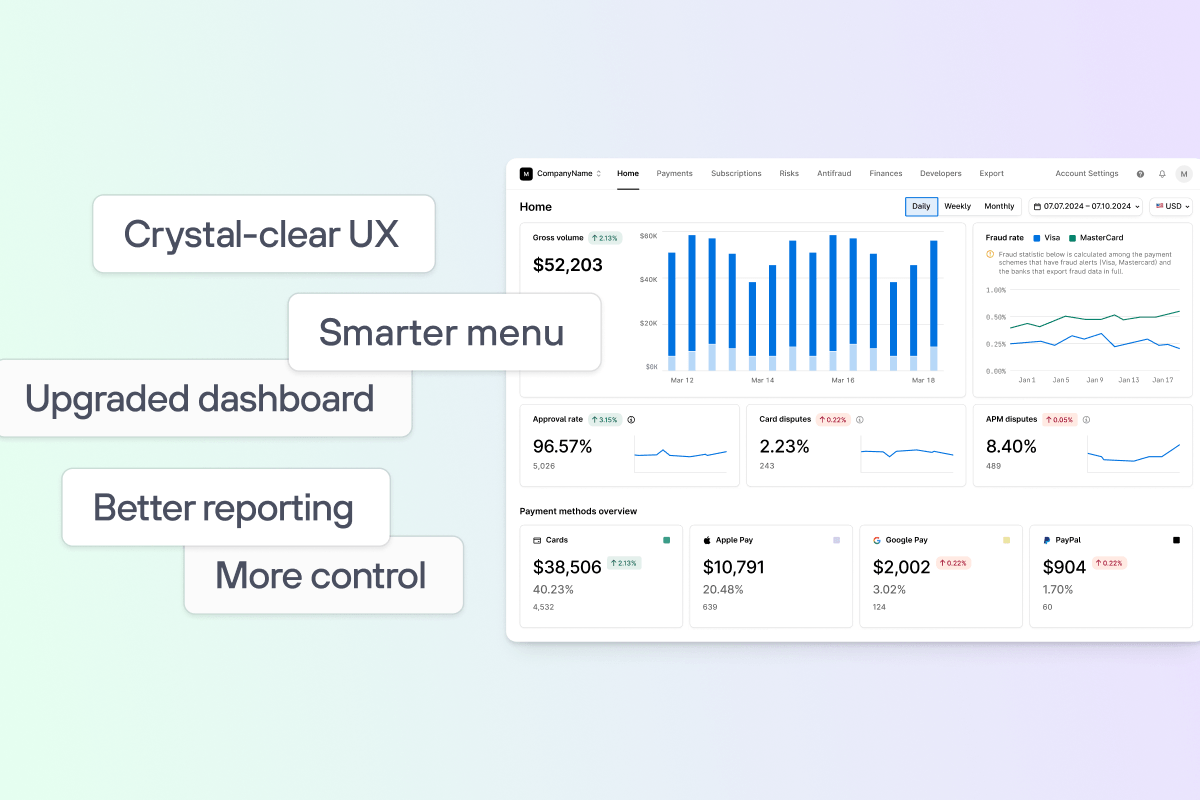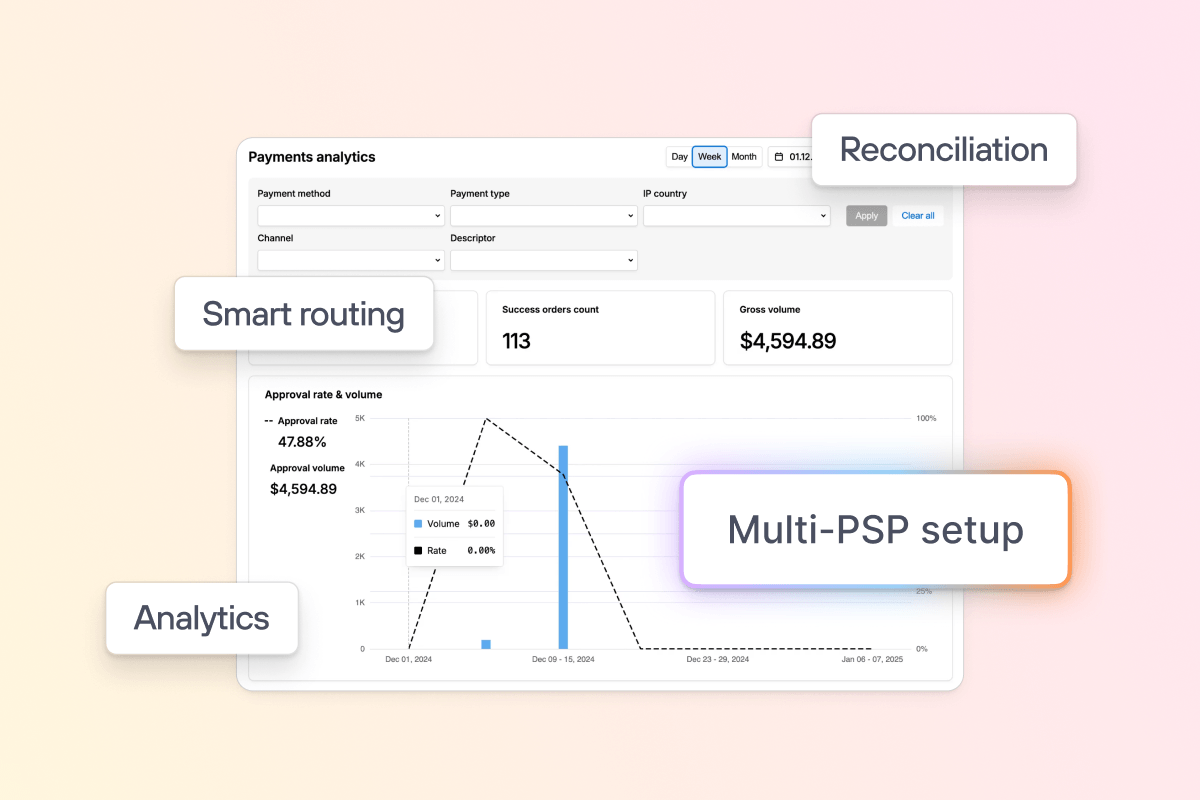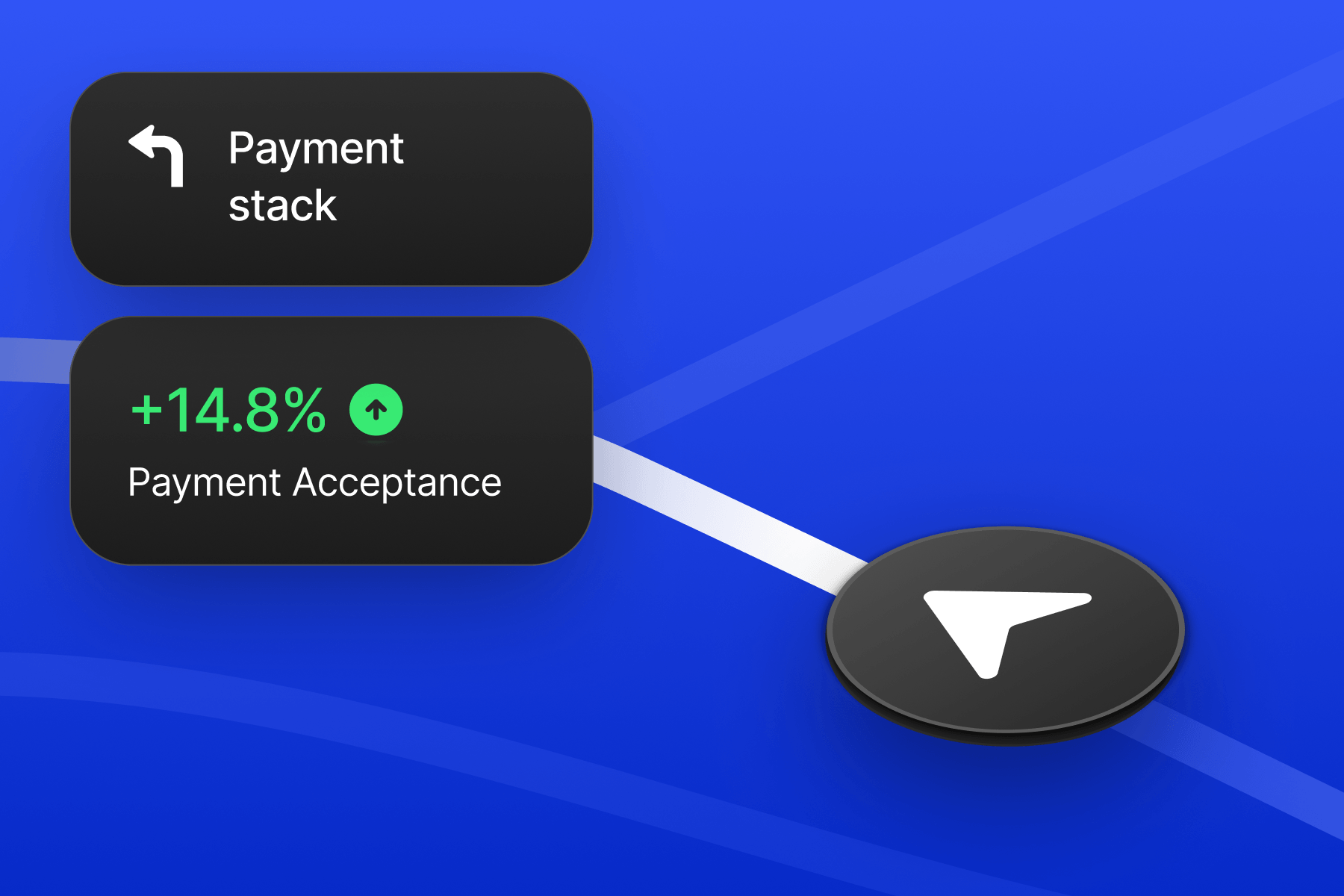Streamlining your payment processes: Updates to Solidgate integration
Product
2 Feb 2024
3 min
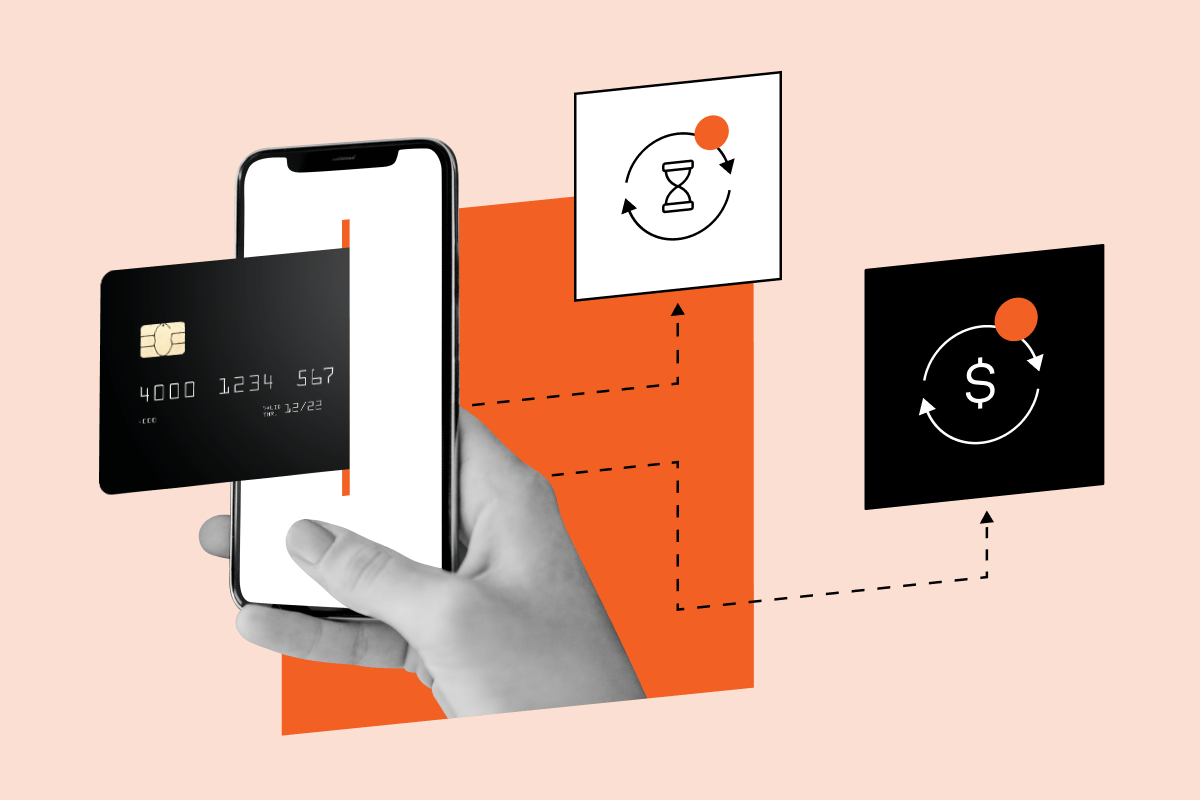
Clearer webhooks, safer payments, and updated flows—learn about Solidgate’s new integration rules. Adapt with 2-step processing, async mode, and Apple/Google Pay updates.
Stay ahead in the rapidly evolving digital payment landscape with the latest updates to Solidgate’s integration system. Effective March 31, 2024, these enhancements, including revised webhook management and the introduction of new URL parameters, are designed to optimize your transaction flow.
Learn how these changes, from webhook customization to the new two-step payment procedure, can streamline your operations and ensure seamless, secure transactions.
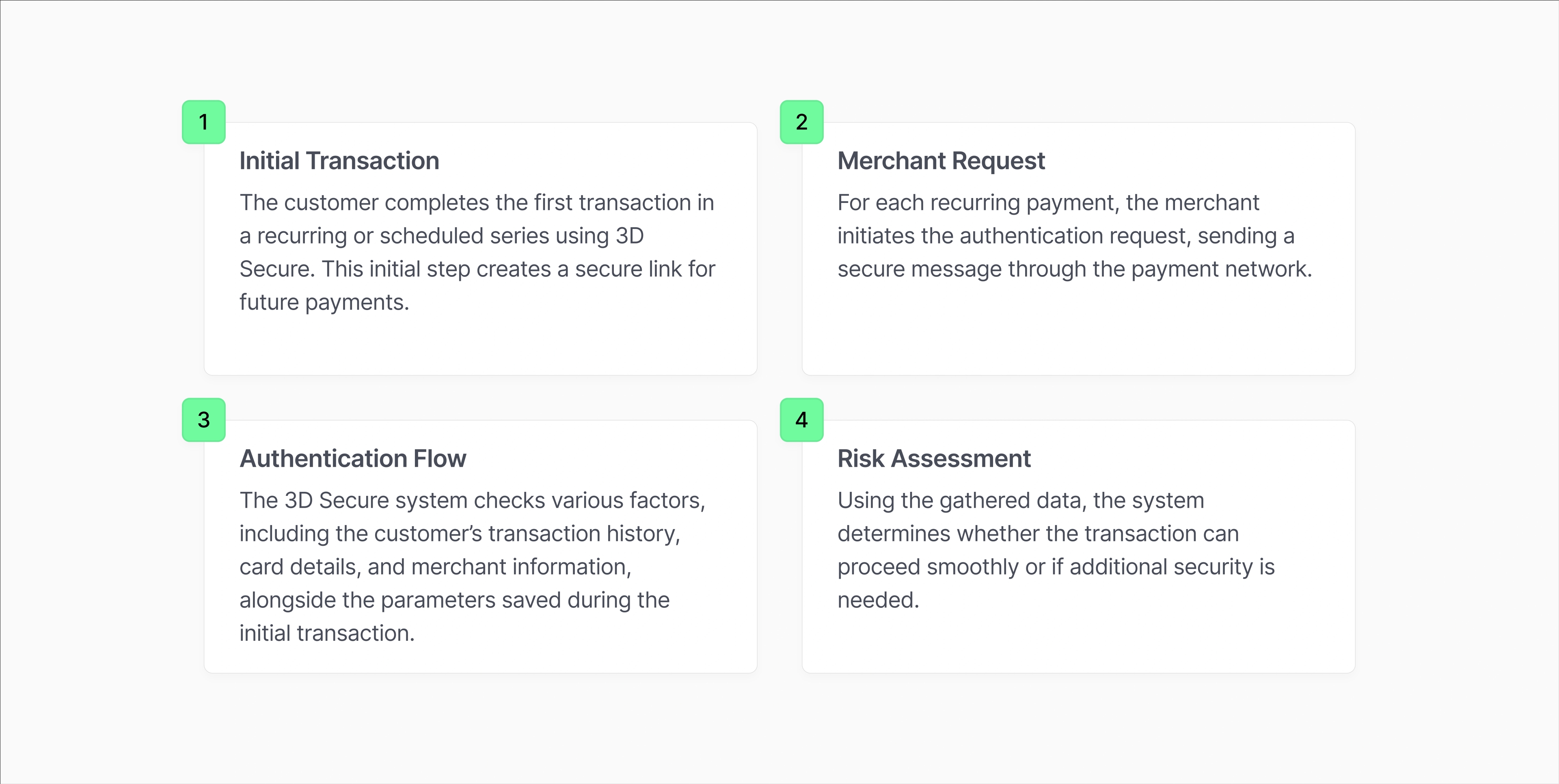
Management of webhook notifications
Hard deadline: March 31, 2024
Currently, you send us a
callback_url in each request, to which we send notifications for every order. Now, you have the option not to include the URL in the request but instead add it through . This customization is done via the channel details (API credentials).If necessary, we can assist you in setting this up in the hub immediately and jointly verify that everything is functioning correctly.
For more information about webhook notifications, please refer to the .
Status URL deprecation
Hard deadline: March 31, 2024
If you are currently using the
status_url, you need to replace it with a success_url and fail_url.For example, in a , your request should be modified as follows:
{
"recurring_token": "token_value",
"order_id": "3445",
"amount": 5900,
"currency": "EUR",
...
"success_url": "http://merchant.example/success",
"fail_url": "http://merchant.example/fail"
}Mandatory 2-step payment flow
Hard deadline: March 31, 2024
Solidgate introduces a mandatory 2-step payment flow, enhancing transaction security and compliance for both auto-settle and standard transaction processes.
- If you use Solidgate’s feature:
- settle transactions by submitting authorization requests with the
settle_intervalparameter - monitor order statuses and void orders with declined transactions
- settle transactions by submitting authorization requests with the
- If you don’t use the feature:
- submit authorization requests exclusively for valid transactions through the settle operation
- always cancel mistaken authorization requests promptly using the void operation
- process order statuses and void orders with declined and
partial_settledstatuses
If you use our , please note that you need to use actions auth-settle/auth-void for trial set-up. In case of a main billing period or product without trial, kindly use the auth-settle action instead of charge.
- Always secure authorization before submitting clearing transactions to maintain compliance.
- Void authorizations that won’t be cleared within the defined time frame to prevent potential issues.
- Process reversals for cardholder-canceled transactions and erroneous authorizations promptly.
| Note: The maximum settle interval is 6 days (144 hours). |
Asynchronous mode with refund, void, and settle transactions
Hard deadline: March 31, 2024
The asynchronous mode of operation involves flow:
- The merchant initiates a , , or request
- takes the request for processing and responds with an intermediate
processing/createdstatus - After processing the request, a notification arrives at the webhook URL with the final
refunded/void_ok/settle_ok
An external API reference contains sample data for , , and .
Changes in payment processing for Apple/Google Pay transactions
Hard deadline: April 1, 2024
Merchants using () payment for upselling must mandatorily update their payment data processing flow. This is necessary to comply with new industry standards and only affects tokens received after payment through Apple/Google Pay.
What’s changing?
- Customer Initiated Transactions (CIT, 1-click): From April 1, 2024, as required by partner banks and according to Payment System Rules, we will no longer support tokens received after Apple/Google Pay for 1-click (CIT) payments or those where the customer is present on the site.
- Merchant Initiated Transactions (MIT, subscriptions): For MIT transactions, the merchant can continue to use tokens received after Apple/Google Pay.
- Integration update: Please update your payment flows to call Apple/Google Pay buttons for all 1-click transactions (CIT) initiated by customers. If you are using a Payment Form, you can call it without the . For H2H calls of / Pay, use the flow as for the first payment.

